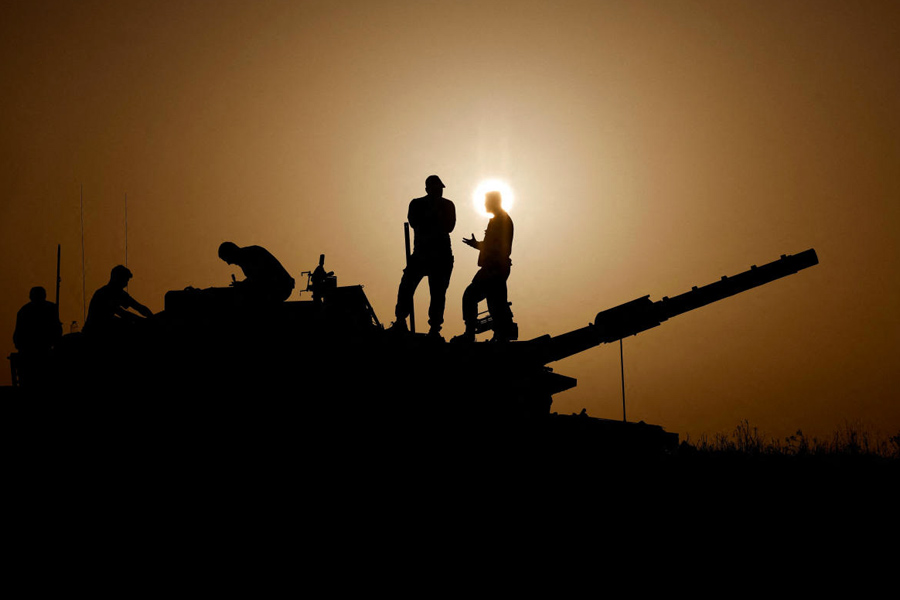Israeli troops are fighting in the heart of southern Gaza’s largest city, a military commander announced on Tuesday, describing some of the heaviest combat of the two-month war amid growing concerns that there is almost nowhere left for civilians to flee.
After days of warning civilians to leave the city, Khan Younis, Israeli forces stepped up their attacks overnight. An intense bombing was heard early on Tuesday from inside Nasser Hospital, the city’s largest, where many Palestinians who have sought shelter were sleeping in hallways.
“We are in the most intense day since the beginning of the ground operation — in terms of terrorists killed, the number of firefights and the use of firepower from the land and air,” the commander of Israel’s southern military command, Major General Yaron Finkelman, said in a statement. “We intend to continue to strike and secure our accomplishments.”
Lieutenant General Herzi Halevi, the chief of the general staff in the Israeli military, said on Tuesday evening that Israeli forces had encircled Khan Younis in the south and were continuing to fight to consolidate control over Gaza City.
“We have secured many Hamas strongholds in the northern Gaza Strip, and now we are operating against its strongholds in the south,” he said. He said the fighting had often been house-to-house, and that adversaries were sometimes wearing civilian clothes. ”Our forces find in nearly every building and house weapons and in many houses terrorists, and engage them in combat,” he said.
It was not possible to independently confirm Israel’s account of the combat. The UN humanitarian office said that the period from Sunday to Monday afternoon “saw some of the heaviest shelling in Gaza so far”.
After Israeli forces ordered civilians to leave northern Gaza in the first month of the war, before their ground invasion, the military has issued new evacuation orders for large parts of southern Gaza, including areas of Khan Younis. The warnings have led human rights groups and aid agencies to warn that beleaguered civilians are being pushed into a patchwork of smaller and smaller areas and, even then have no guarantee that they will be spared from airstrikes.
Thomas White, the Gaza director of the UN agency for Palestinian refugees, said early on Tuesday that neighbourhoods that are home to some 600,000 people were ordered to be emptied. The evacuation could drive an additional half-million people to Rafah, along the southern border with Egypt, doubling the number of the displaced sheltering in the already brimming city, he wrote on X.
New York Times News Service










